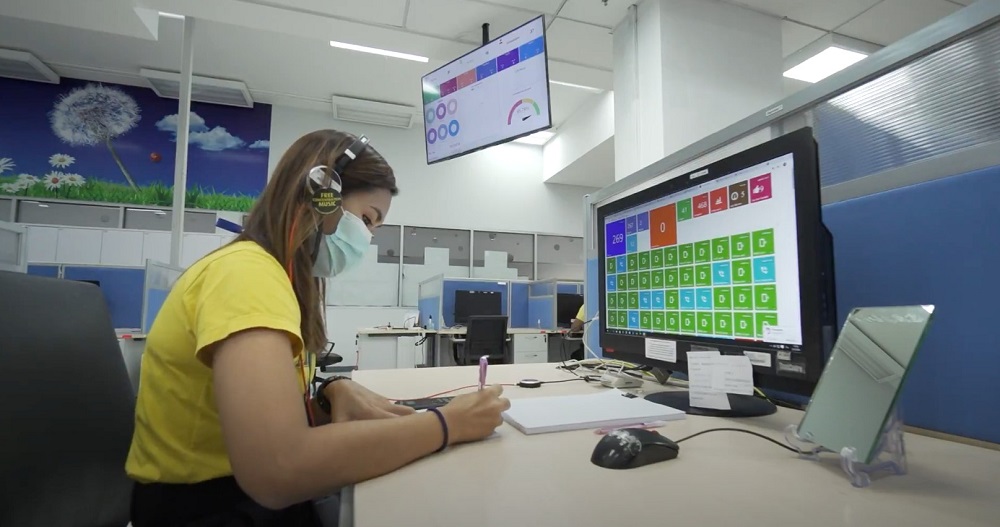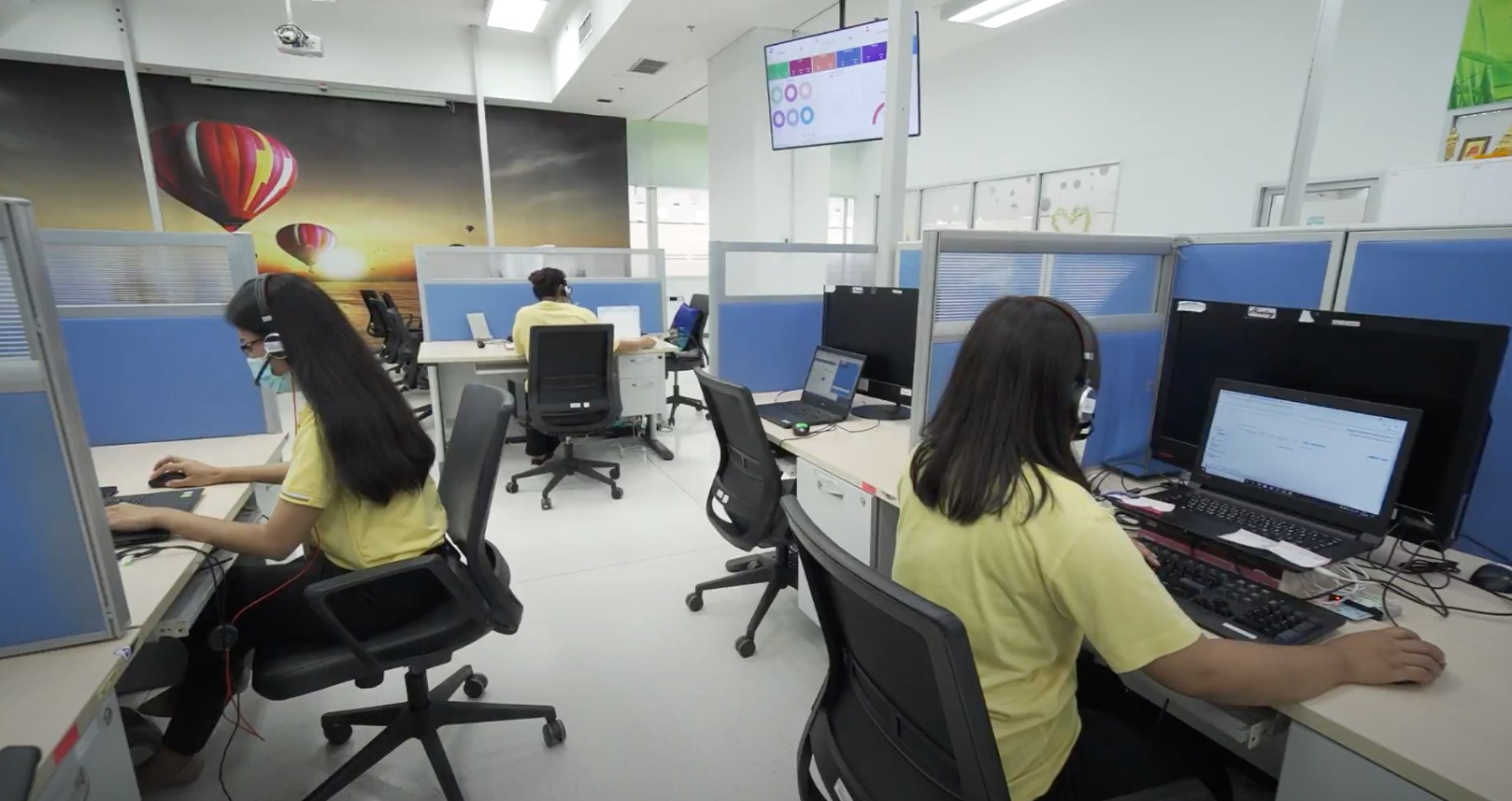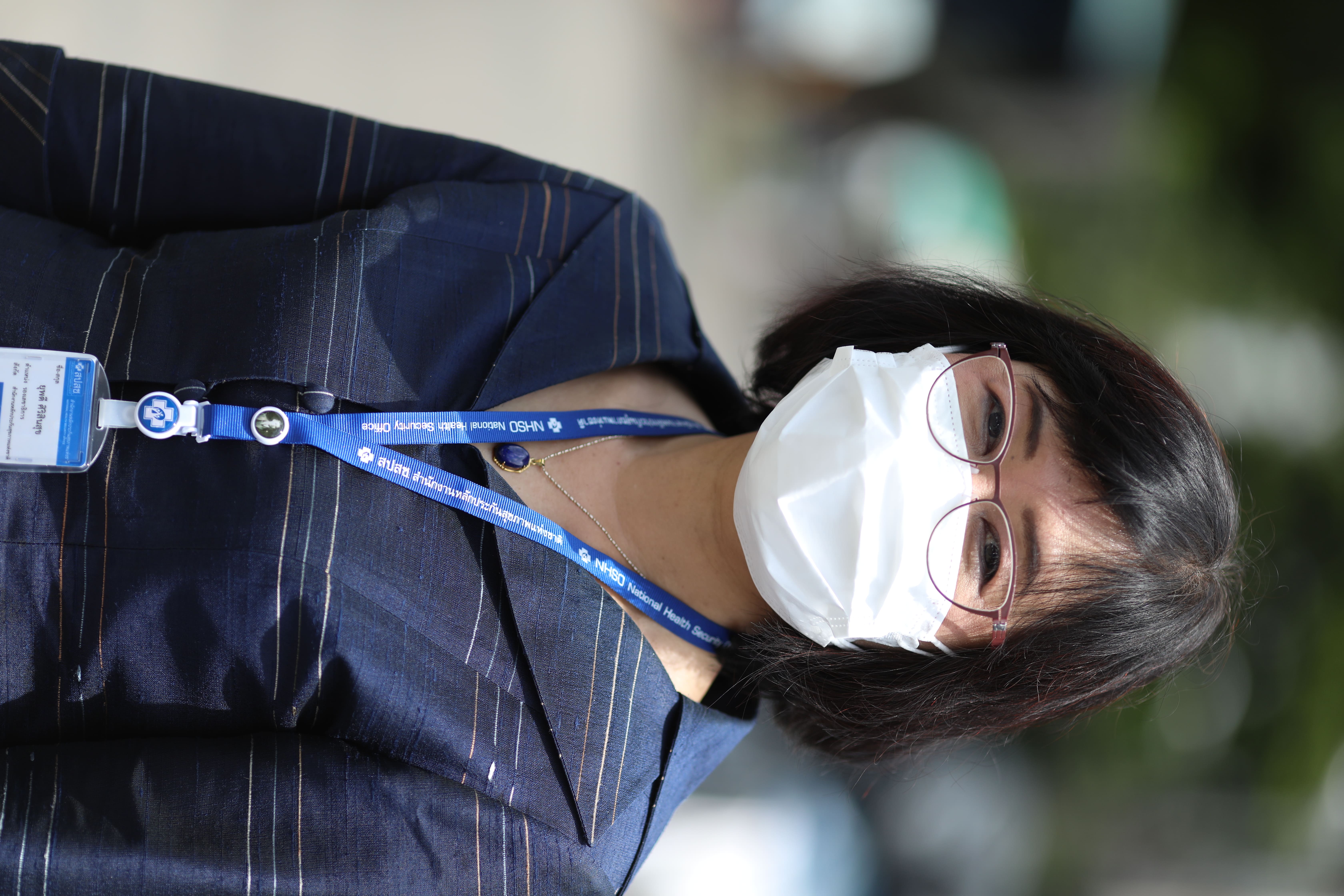
- Home
- DescriptionNews
NHSO’s Hotline No.1330 upgraded to meet surging demand for help during COVID-19 outbreak

NHSO’s Hotline No.1330 upgraded to meet surging demand for help during COVID-19 outbreak
Despite a decline in number COVID-19 infections, certain groups of medical experts have cautioned that the outbreak situation still is worrisome. The Thammasat field hospital, for instance, has even warned over the possibility of a fifth wave of COVID-19 erupting some time between October and the end of this year.
After all, the good news is Thailand has learned a great deal about COVID-19, from the time it emerged and was recognised as the first wave of the outbreak in the country up until now.
The evidence of this good understanding about the outbreak is very good public compliance with COVID-19 control measures. They, for example, continue avoiding going out unnecessarily although the COVID-19 lockdown has already been eased.
State organisations have as well learned a lot and developed a system to cope better with problems associated with the outbreak. The National Health Security Office (NHSO), for one, has vastly improved its hotline No.1330 until it has become a main channel in coordinating efforts to find hospital beds for COVID-19 patients.
In the beginning, a lot of complaints have been received about the hotline service, ranging from busy lines to slow responses to requests for help. These problems have been analysed and resolved.
The NHSO, under leadership of Dr Jadej Thammathacharee, secretary-general, has diverted resources to maximise the capacity of the hotline No.1330 service. The number of telephone lines and staff members answering the phone has been increased by several folds.
Doungnapa Pichetkul, the director of the NHSO’s office of public services and healthcare rights protection, said before the COVID-19 outbreak, the NHSO hotline No.1330 only served the Universal Coverage Scheme (UCS).
It was back then used to handle such as requests and enquiries about healthcare right switching in and out, she said, adding that between 15,000 and 20,000 calls were answered each day at that time.

However, after the hotline service began serving COVID-19 patients also, the number of calls surged to at least 30,000 per day, she said.
Operated around the clock, calls usually peak at certain periods of time of the day, which unfortunately resulted in callers having to wait for a long time. Before COVID-19, the rate of unanswered calls was between 5% and 15% of all calls made to the hotline, while during the outbreak the rate of unanswered calls has surged to 66%, she said.
“This is partly due to differences in the talking time. Before COVID-19, the conversations dealt mainly with questions and answers about the UCS, which last about five minutes [per call on average],” she said.
“Calls involving complaints [about the UCS) usually take about 30 minutes each. But when COVID-19 came, each call took much longer than that as many more questions have to be asked and answered,” she said.
To eliminate these bottlenecks in the hotline service, Dr Jadej has decided to expand the hotline’s capacity by several folds of its previous capacity, she said.
“In the beginning we had only 70 staff members to handle the hotline calls per shift but Dr Jadej thought that wasn’t enough. So, he ordered to increase both the number of lines and telephone answering staff, which now makes it possible for up to 3,000 calls to be made to the hotline in one minute,” she said.
As for the back office management of the hotline service, she said, the number of staff members answering the phone has been increased to 700 in the morning shift, including NHSO staff, newly hired call centre staff and volunteers from both public and private sectors.
These people deal mainly with interviewing patients in order to assess the possibility of getting them in home isolation for COVID-19, she said.
“All telephone answering staff have been trained and equipped with basic knowledge about COVID-19 required for conducting a patient interview, checking their COVID-19 test results and enquiring them about [the condition of] their homes,” she said.
Previously, as the number of COVID-19 patients had increased by many times, many of them might have to wait for a long time for a healthcare provider to be assigned to handle the home isolation service for them and contact them, after registering for the home isolation programme, she said.
When receiving complaints about this common problem, the hotline staff members and relevant sectors always try to help by coordinating the assignment of these new home isolation patients to the local healthcare providers, both under the Public Health Ministry and the Bangkok Metropolitan Administration (BMA), she said.

Deputy NHSO Secretary-General Yupadee Sirisinsuk, meanwhile, has admitted that many patients must have been frustrated when attempting to call to the hotline No.1330 and the lines are engaged.
Considering the number of COVID-19 patients and the serious situation of the outbreak, the hotline No.1330 can never satisfy this extremely high demand for the service even though the hotline service’s capacity has already been maximised, she said.
“We have assigned all NHSO staff to take turns answering the phone and hired more staff to do the job…but the outbreak situation has become way too serious [than we could deal with],” she said.
The NHSO has dealt not only with improving the hotline service for COVID-19 patients but also patients’ access to necessary care and treatment, she said.
“When people have been infected with COVID-19 and don’t actually know what to do and who to ask for help, we now are trying to make the hotline No.1330 a service they can turn to for help. We are compiling and supplying information necessary for them and contacting a healthcare provider for them too,” she said.
The hotline No.1330 has become a main mechanism in the Centre for COVID-19 Situation Administration’s (CCSA) attempt to improve as much as possible convenience for COVID-19 patients when it comes to seeking healthcare services, she said.
“There actually are other areas of the work the call centre is doing to help ease difficulties faced by COVID-19 patients as well such as calling those who still have to wait for a healthcare provider to follow up on their condition,” she said.
“Even in case of the Green Group patients (asymptomatic or with mild symptoms), if they need drugs for treating some symptoms while awaiting the process of matching them with care providers, we normally deliver the drugs to them right away,” she said.
“Although these may not be direct responsibilities of the NHSO, we are trying to help as much as we can,” said the NHSO’s deputy secretary-general.

